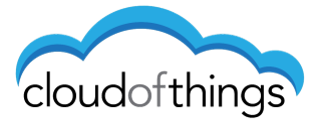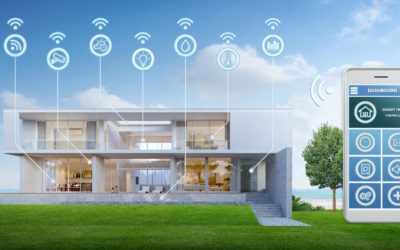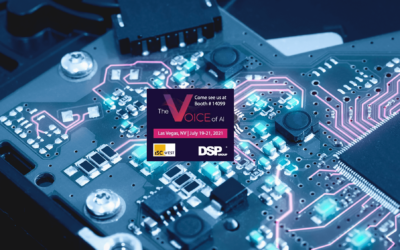Will 2020 Be A Breakout Year for Smart Products?
After experiencing a year of tremendous innovation and growth in 2019, the team at Cloud of Things is at the center of the new smart product revolution, as the creation of connected products becomes easier for smart product brands, manufacturers and distributors to commercialize. Today, with a few simple solutions, they can turn any electrified device into a connected device, improving service and driving new recurring revenues and business models.
The first decade of IoT saw great progress in the areas of wearables, smart watches, security systems, home heating and cooling devices, robotic cleaning appliances, and more. Pioneering companies with deep pockets and massive R&D groups rolled out smart refrigerators, dishwashers, laundry appliances and more, leveraging the ubiquity of high-speed broadband through IP-based solutions, connecting homes using Internet access points and services.
The Cloud of Things team sees 2020 as a breakout year for product manufacturers to bring connected offerings to the mass market, given the advancement of software, network protocols, better economics and more security, eliminating barriers that have held back progress in the past.
We see significant advancements this new year in:
Interoperability: product manufacturers, systems integrators, connectivity and service providers and the consumers of smart products will start to experience the benefits of years of work by the IoT community, through initiatives like EdgeX Foundry (a Linux Foundation project), the LoRa Alliance, the ULE Alliance and many more. It took time to establish these organizations, but they grew rapidly and continue to attract community members and participants, and now we are seeing interop “built in” beyond proof-of-concepts and testbed trials. Our industry is moving towards “collective general availability.”
Innovation: as barriers are removed, and software platforms, APIs and SDKs are maturing and becoming more powerful and adaptive, product developers in start-ups, small and medium businesses, and emerging brands are able to not just imagine and invent smart products, but roll them out faster and with less risk than has ever been possible.
Digital Transformation: even the most basic products can now be connected, which is making it possible for white goods manufacturers, for example, to simply “instrument” their products and instantly be able to offer recurring revenue services of value to their distributors, retailers, and most importantly, end customers. What we used to think of as product warranties will become online predictive maintenance and service, with valuable support built into products. This means the brands selling these products, and their retailers can also understand what is happening, how end customers are using the software associated with the “thing”, and deepen the relationship, selling more services, marketing upgraded models, and creating mash-ups, for example smart refrigerators that automatically order milk and butter from a connected foods company.
Security and Privacy: no longer an afterthought, smart products will be so well designed and comprehensively coded that fears regarding hacking and attacking the IoT will be addressed up front. Pushed along by important new regulations, like GDPR in Europe, and numerous privacy regulations being implemented around the world, as a community IoT developers are taking security seriously – and any company that doesn’t have strong security DNA will not succeed. Companies along the entire supply chain – from the sensors and devices at the edge, to the network access points, and throughout the sessions connecting things with clouds and applications – will benefit tremendously when they build their part of solutions with unbreakable security in mind.
Multicloud Agility: we’ll move well beyond the notion of “public – private – hybrid” cloud architectures in 2020. We are now in the “multicloud” era where smart product solutions can operate on any number of clouds, depending on the application, the geographic reach, and more. Cloud of Things CloudSwitch™ was purpose built to support multiple cloud deployments, enabling service providers to easily select the right clouds for the right applications, with the unique ability to be able to route data to multiple clouds (for example, to the IBM Bluemix cloud and IBM Watson for AI processing). This agility is critical in all stages of smart product development, from POC and testing to rolling out nationally and globally distributed solutions, connecting products to centralized administration, help desks, contact centers and more.
Silicon Economics: prices will come down, making smart products affordable for brands, manufacturers, systems integrators and managed service providers. Every participant in the IoT food chain will benefit, as smart product sensors are tuned to LoRa, ULE and other low-power networks, dramatically extending the life of batteries. In the typical mass market fashion, the more things we make, the less things cost to make, and for those who get their business models right – the more profit we make. Now that we are at the threshold of IoT for all, we will start to see more and more creativity in smart products and related ongoing services – until any new industry cracks the code on how everybody makes money while making the end consumers happy, that industry cannot realize the true promise.
In the case of IoT and smart products at scale – we are confident 2020 will be an exciting year of continued growth, despite the challenges we are facing with the global pandemic. In fact, IoT solutions are sprouting up everywhere that are being used to make the world safer and able to respond more quickly and intelligently.
Similar Blogs
The Intelligent Edge Just Got Smarter: DeviceTone’s Full Managed ULE Gateway Meets DSP Group’s ULE Module Empowering IoT Innovation
This week, Cloud of Things will be demonstrating the combination of our DeviceTone fully managed IoT cloud services gateway based on DSPG’s ULE module at the International Security Conference & Exposition, also known as ISC West, which runs from July 19-21 at the Sands Expo in Las Vegas.
DSP Group and Cloud of Things Collaborate to Introduce a Fully Managed IoT Cloud Services Gateway Based on DSP Group’s ULE Module
DSP Group, Inc. (NASDAQ: DSPG), a leading global provider of wireless and voice-processing chipset solutions for converged communications, and Cloud of Things, a developer of solutions around its DeviceToneTM technology that quickly and efficiently make products smart, announced that they will be using the upcoming ISC West trade show in Las Vegas, NV to demonstrate a fully managed Internet of Things (IoT) gateway based on ULE. An enterprise-grade device, the CoT Smart IoT Gateway securely collects sensor and equipment data from the edge of the network for localized or cloud-based analysis, relying on ULE for reliable, interference-free, full-coverage wireless communications throughout the home or office.
Data Integrity and Privacy in Smart Cities: Standardization and Collaboration is Key
According to the United Nations Population Fund, more than half of the world’s population now lives in urban areas, and it is predicted that approximately 66 percent of the world’s population will live in an urban environment by 2050.



